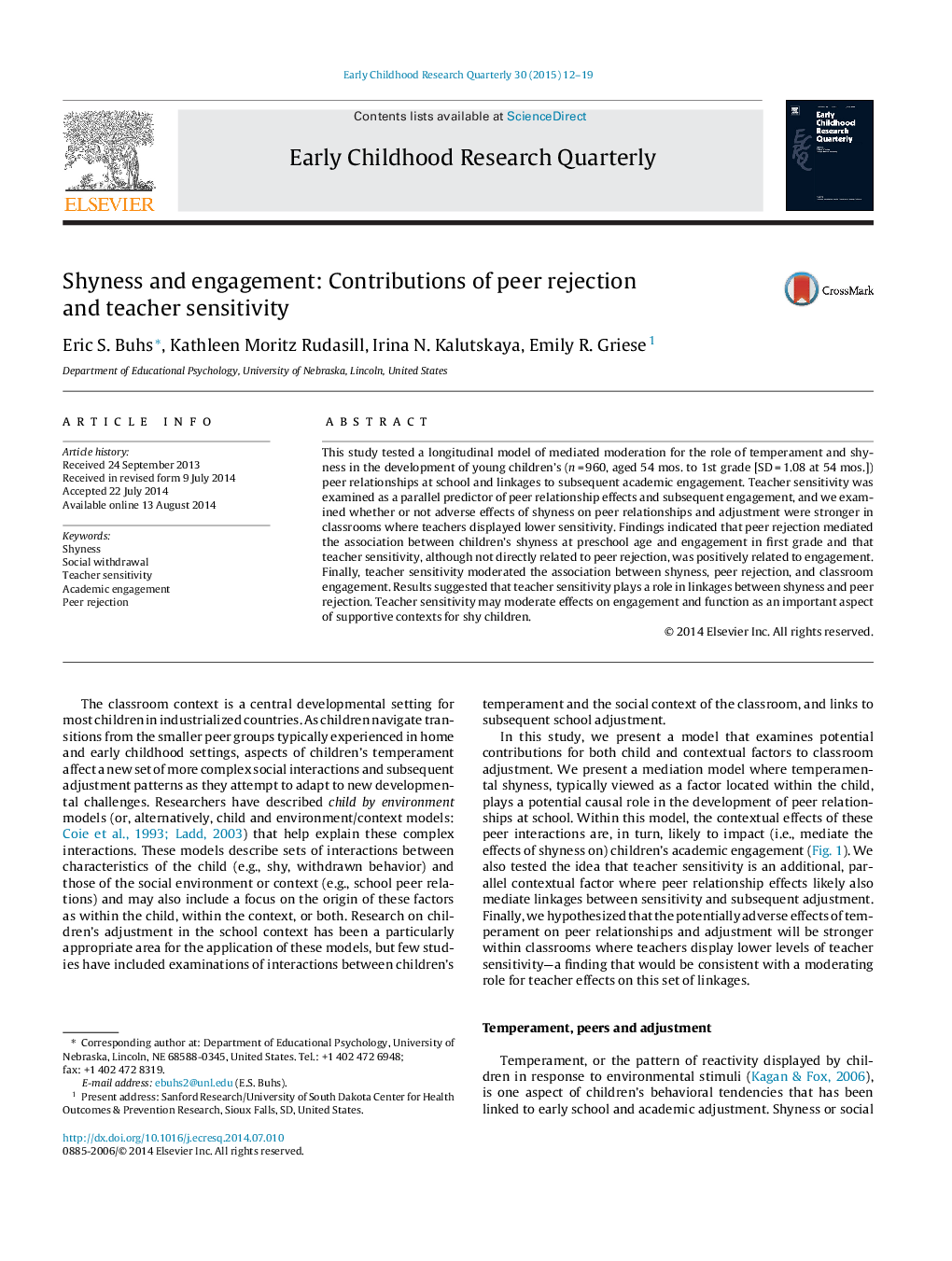| Article ID | Journal | Published Year | Pages | File Type |
|---|---|---|---|---|
| 10313487 | Early Childhood Research Quarterly | 2015 | 8 Pages |
Abstract
This study tested a longitudinal model of mediated moderation for the role of temperament and shyness in the development of young children's (n = 960, aged 54 mos. to 1st grade [SD = 1.08 at 54 mos.]) peer relationships at school and linkages to subsequent academic engagement. Teacher sensitivity was examined as a parallel predictor of peer relationship effects and subsequent engagement, and we examined whether or not adverse effects of shyness on peer relationships and adjustment were stronger in classrooms where teachers displayed lower sensitivity. Findings indicated that peer rejection mediated the association between children's shyness at preschool age and engagement in first grade and that teacher sensitivity, although not directly related to peer rejection, was positively related to engagement. Finally, teacher sensitivity moderated the association between shyness, peer rejection, and classroom engagement. Results suggested that teacher sensitivity plays a role in linkages between shyness and peer rejection. Teacher sensitivity may moderate effects on engagement and function as an important aspect of supportive contexts for shy children.
Related Topics
Social Sciences and Humanities
Psychology
Applied Psychology
Authors
Eric S. Buhs, Kathleen Moritz Rudasill, Irina N. Kalutskaya, Emily R. Griese,
